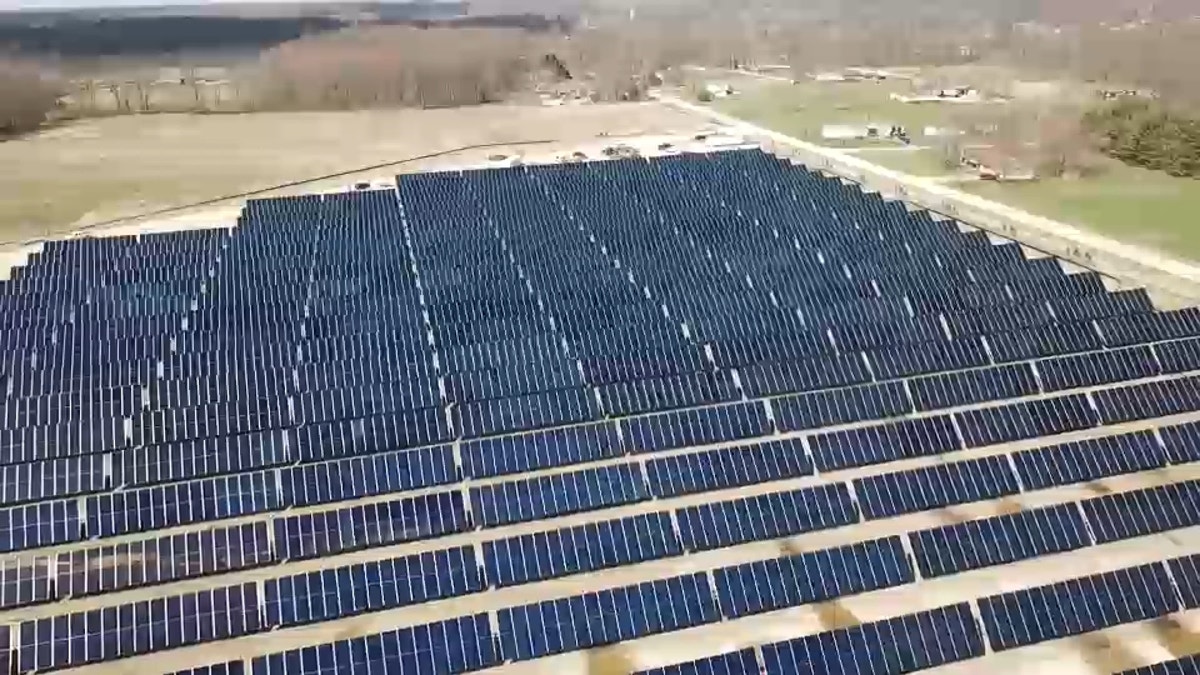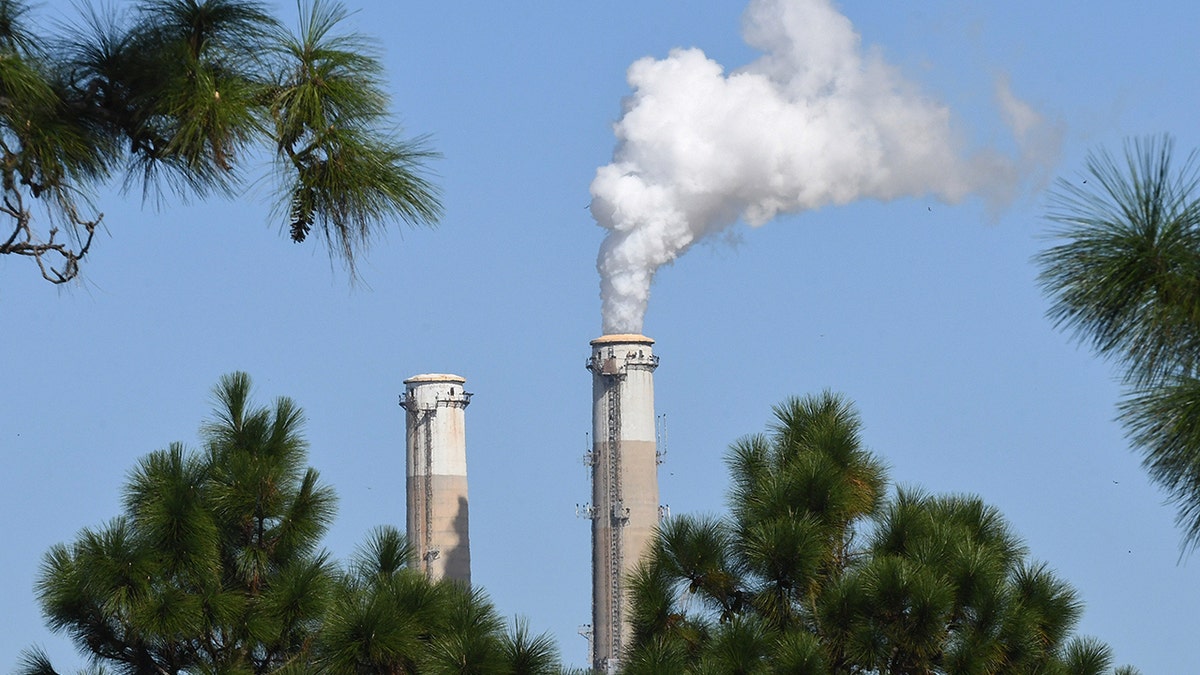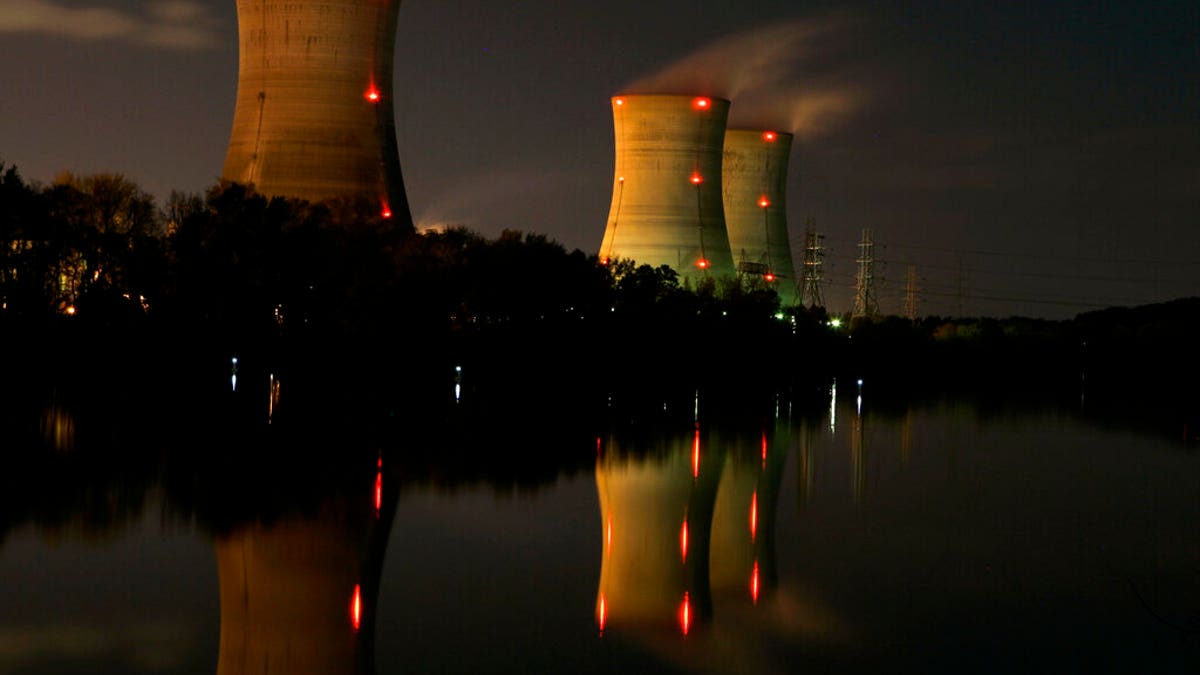Fox News Flash top headlines for May 23
Fox News Flash top headlines are here. Check out what's clicking on Foxnews.com.
Electrical-grid operators are warning Michigan residents that blackouts could be needed during the hot summer months, with a hurried changeover to renewable energy sources at the forefront of the issue.
"Our leaders need to be real cognizant of the day-to-day impact," Joe Trotter, the Energy, Environment, and Agriculture Task Force director for the American Legislative Exchange Council, said of switching to renewable energy when reached by Fox News. "It’s great to look at the future, but the present has a huge impact on their constituencies."

Solar panels.
Trotter's concerns come after the Midcontinent Independent System Operator's seasonal assessment found "capacity shortfalls in both the north and central regions of MISO… leaving those areas at increased risk of temporary, controlled outages to preserve the integrity of the bulk electric system," JT Smith, the MISO executive director, told NPR earlier this week.
That reality could lead to controlled outages in Michigan this summer, a step MISO said has never been taken in the state before.
TEXAS POWER GRID OPERATOR URGES RESIDENTS TO CONSERVE ENERGY AS PLANTS GO OFFLINE
MISO said an unusually hot summer in the state will stress the grid, with MISO projecting a peak forecast of 124 gigawatts, higher than the current 119 GW of available power generation.
But hot weather isn't the only reason Michigan could face an electrical shortfall this summer, with Trotter telling Fox News that too many traditional power plants are being shut down as grid operators attempt to switch over to renewable sources of energy.
"With the rise of solar and wind, it’s highly dependent on external factors that are not controllable," Trotter said.

The twin smokestacks at the Stanton Energy Center, a coal-fired power plant. (Paul Hennessy/SOPA Images/LightRocket via Getty Images)
Solar and wind power, favorites of those hoping to switch the country over to greener sources of energy, don't have the capability to generate power 24 hours a day. To alleviate this issue, batteries that can store energy for later use are being developed. But Trotter noted technology does not currently have the capacity to meet demand, while prices for the batteries are far outpacing traditional power generation sources such as natural gas.
GRID OPERATORS WARN OF ELECTRICITY SHORTAGE AMID SWITCH TO RENEWABLES: REPORT
That hasn't stopped policymakers from steaming ahead with replacing traditional sources of energy, which has seen coal and natural gas plants shut down at a faster pace than infrastructure to support renewable energy can be built.
"They’re taking coal plants offline," Trotter said.
"There’s this focus on a much more long-term solution to replace it with renewables," he added, but argued that those solutions are "years or decades away from being able to replace the coal."
Michigan Republican State Rep. Jack O'Malley told Fox News that he has seen a similar issue, arguing that the pace traditional plants are closing is likely too ambitious.
"What we have is a generation problem," O'Malley said. "I think it’s a combination of an honest effort to reduce carbon, which I think everyone is for. The problem is I think there are some unrealistic thoughts from some people on the environmental side. That is that wind and solar can carry the day."
O'Malley noted that many environmentally conscious policymakers are opposed to less environmentally damaging forms of traditional energy production, such as nuclear energy and natural gas, even though these forms of production could help make up for energy shortfalls.

Nuclear power plan. (AP Photo/Carolyn Kaster, File)
"I am all for renewable, but we also have to look at what makes sense," O'Malley said.
The problem is not just limited to Michigan, with electric-grid operators from across the country warning of similar issues in other regions.
CLICK HERE TO GET THE FOX NEWS APP
California's grid operator warned last week that extreme heat and wildfires over the summer could lead to a shortage of energy, while Texas has been plagued by issues with its grid in recent years.
"Every market around the world is trying to deal with the same issue," Brad Jones, the interim chief executive of the Electric Reliability Council of Texas, told the Wall Street Journal last week. "We’re all trying to find ways to utilize as much of our renewable resources as possible… and at the same time make sure that we have enough dispatchable generation to manage reliability."
Trotter noted that part of the issue stems from a lack of compatible infrastructure to accept power generation from renewable sources, even if those sources were ready to accept the large demand of the hot summer months.
He argued that the solution in the short run is to keep traditional power plants operational, but questioned whether policymakers had the "political will to do it."
"The solution is to try to keep these plants open," Trotter said. "If the concern is coal itself, you can convert to natural gas."


